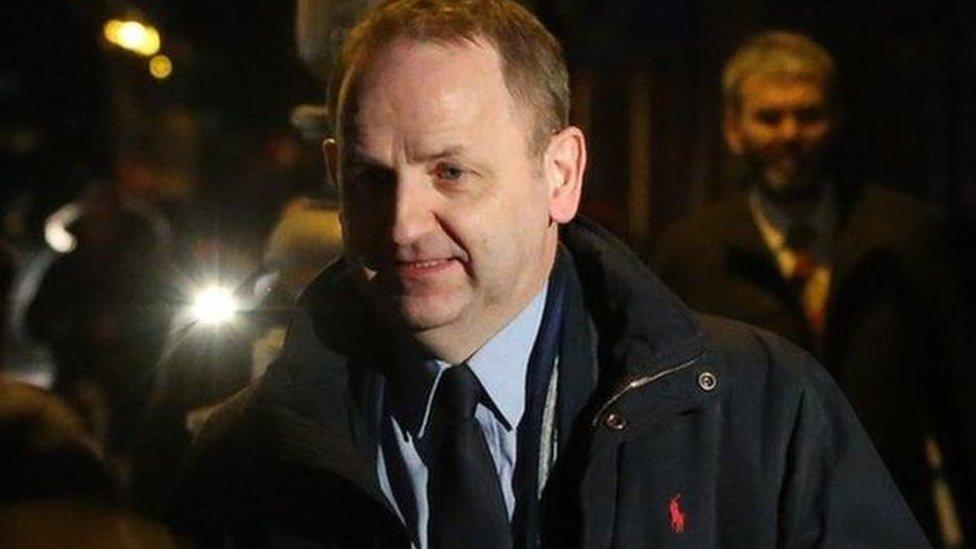Leo Varadkar hopes talks can avert Irish general election
- Published
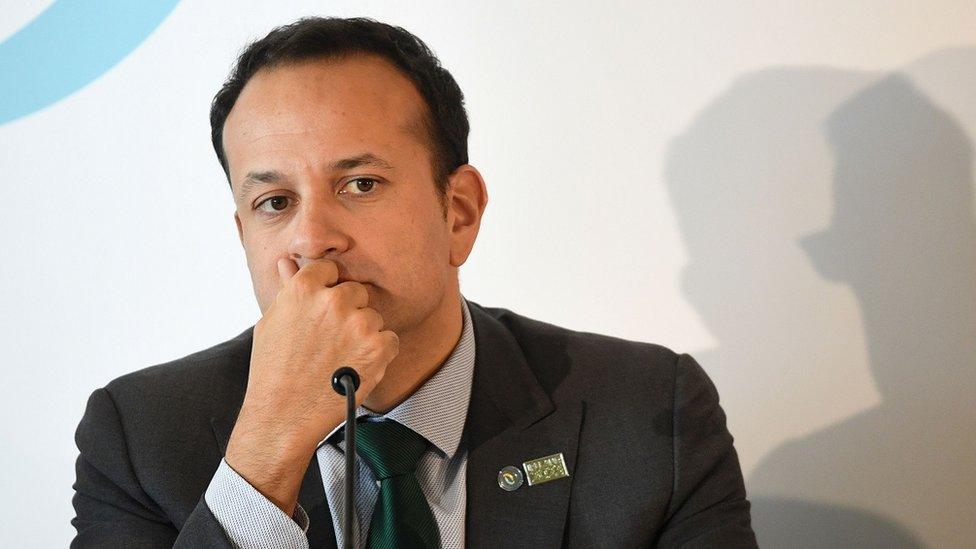
Leo Varadkar said that if an election happened "it would be better to have it done before Christmas"
Irish Prime Minister Leo Varadkar has said he hopes talks can resolve a crisis that threatens to collapse the Irish government.
The motion against Frances Fitzgerald comes over her handling of a police whistleblower controversy.
Mr Varadkar said he did not want a general election.
However, the taoiseach (Irish prime minister) added that he will continue to back Ms Fitzgerald and that if an election was to happen "it would be better to have it done before Christmas".
The no confidence motion threatens the confidence-and-supply arrangement in which the Fine Gael-led minority government is supported by Fianna Fáil.
Fianna Fáil agreed after the 2016 general election not to vote against the minority government in confidence motions and to support it for three budgets, two of which are now past.
The two parties are now at loggerheads over the position of Ms Fitzgerald.
Fine Gael passed a motion to support her at an emergency party meeting on Thursday night.
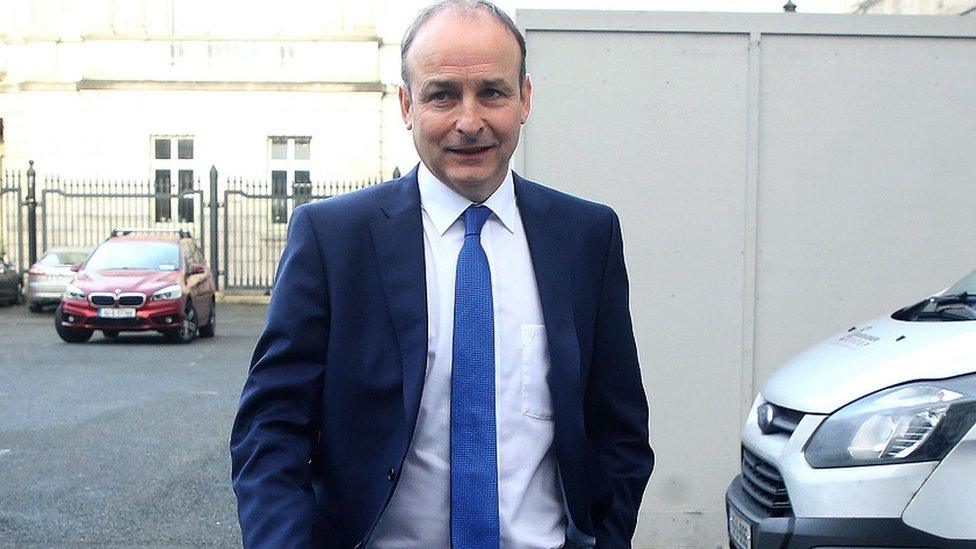
Fianna Fáil leader Micheál Martin said the situation would be resolved if Ms Fitzgerald resigned
Fianna Fáil front bench members lodged the no confidence motion for debate next Tuesday.
Mr Varadkar said that talks between himself and Fianna Fáil leader Micheál Martin on Friday had "cleared the air somewhat".
He said that Fianna Fáil motion was still going ahead but that there is still "an opportunity over the next couple of days to resolve it".
"I don't believe that the decapitation of the tánaiste (deputy prime minister), based on trumped-up charges, is fair," he told Irish national broadcaster RTÉ.
"So let's all calm down a bit, let's pause for reflection, let's perhaps withdraw these motions and allow the Charleton Tribunal, starting on 8 January, to do the work that we set it up to do."
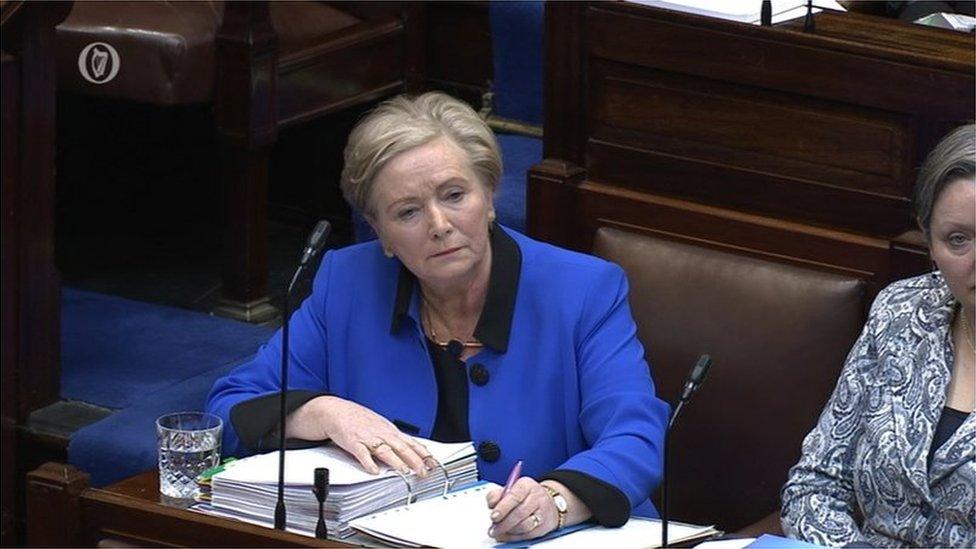
Frances Fitzgerald was Irish minister for justice during a police whistleblower controversy
Earlier on Friday, Mr Martin said that his party did not want an election but that the issue could be resolved if Ms Fitzgerald resigned.
Ms Fitzgerald has faced questions in the Dáil (Irish parliament) about what she knew about what lawyers were going to put to a whistleblower at a commission of enquiry.
In particular, she has been questioned over her account of an email she received about the legal strategy of the former Garda (police) commissioner in the case of Sgt Maurice McCabe.
Ms Fitzgerald has recently admitted that she was made aware a year earlier than she had previously stated, that lawyers for the Garda were going to attempt to discredit Sgt McCabe.
The email was initially sent to Ms Fitzgerald in May 2015, but she told the Dáil earlier this week that she could not remember reading it.
Sinn Féin, the country's third largest party, had tabled their own no confidence motion against Ms Fitzgerald on Thursday.
- Published24 November 2017
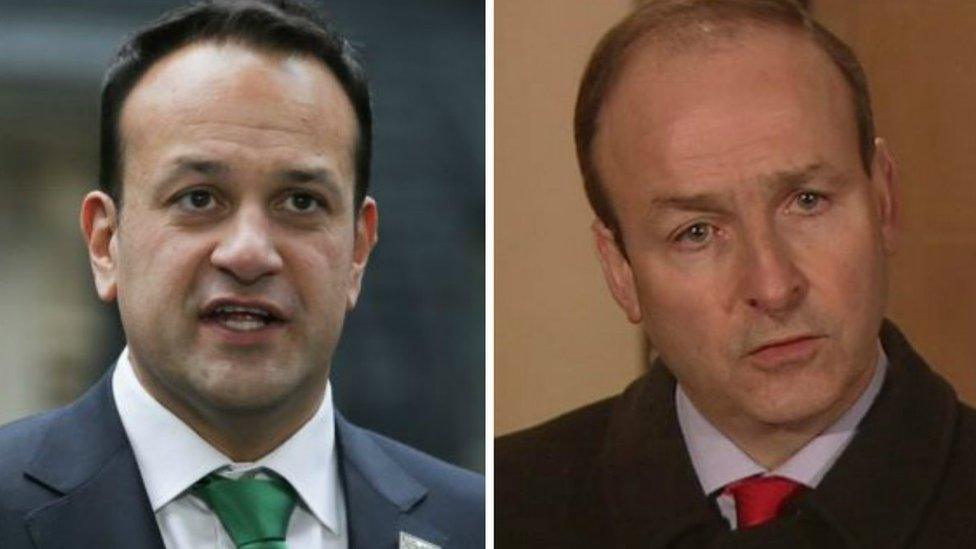
- Published6 May 2017
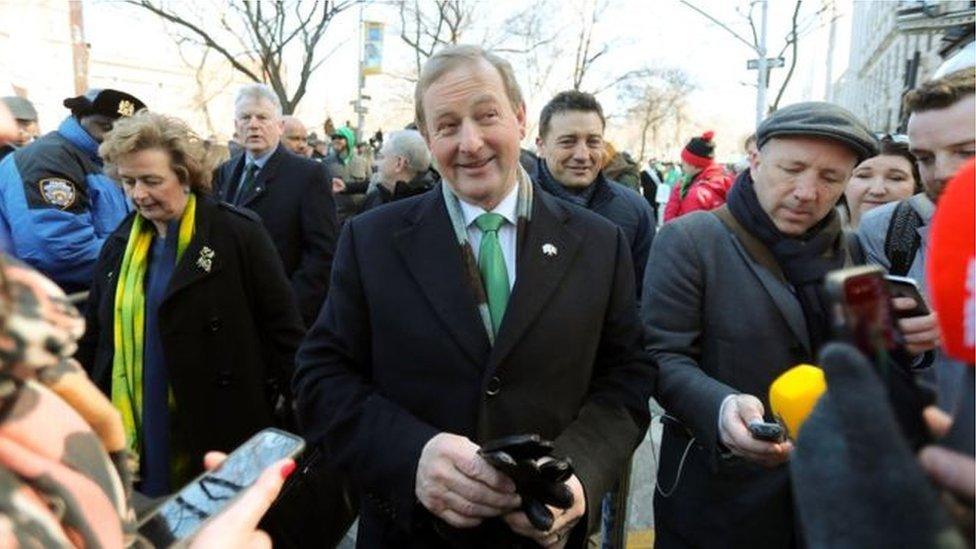
- Published29 April 2016
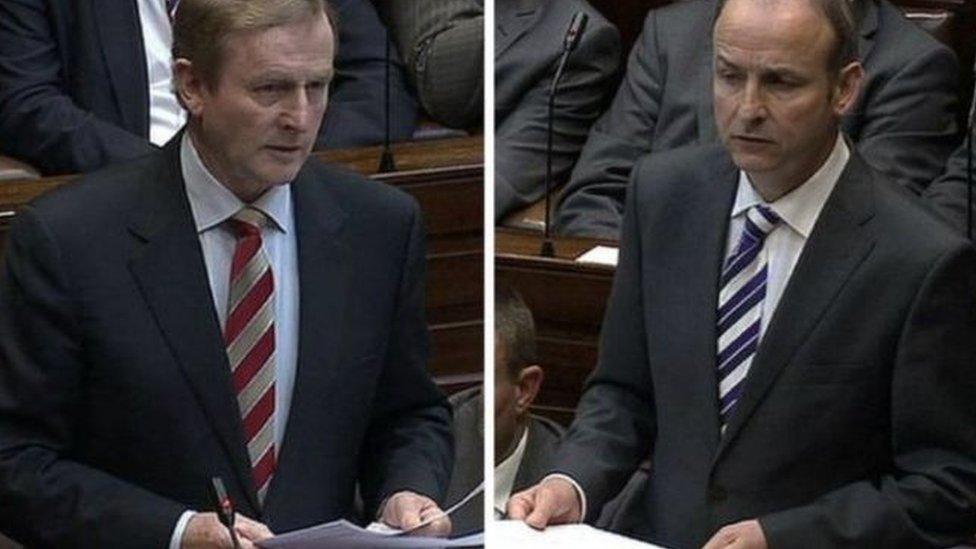
- Published9 February 2017
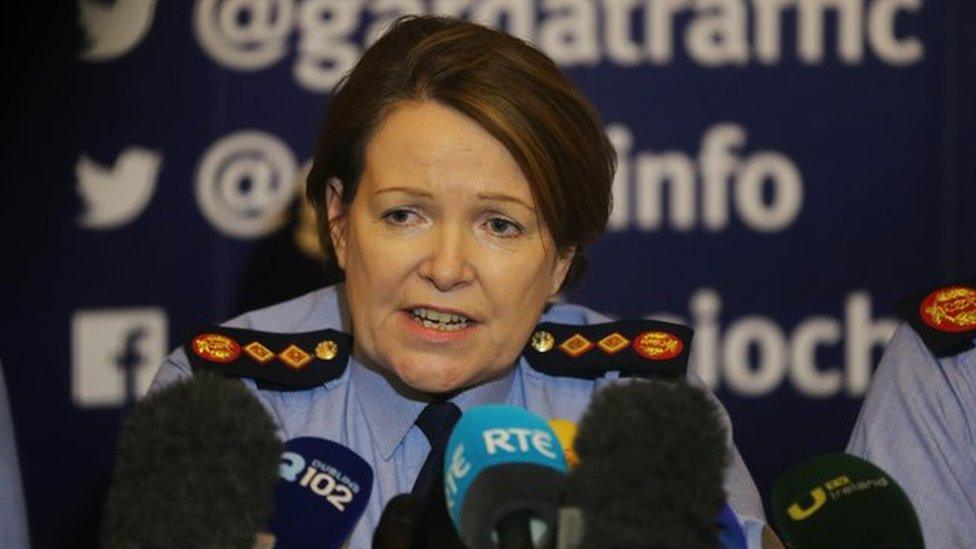
- Published10 April 2017
